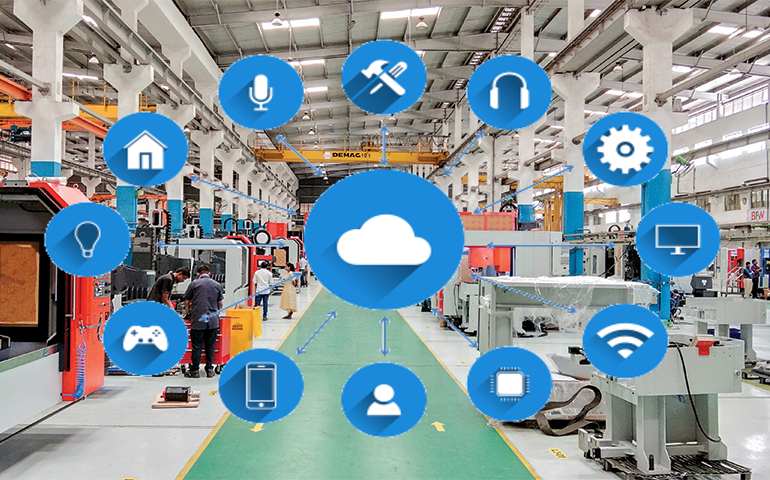
There are a few questions you need to ask yourself before going for an IoT solution.
Does the IoT solution fit into your existing IT platform?
It is very typical that your manufacturing firm already has a network of IT systems operating at a complete phase. And an IoT solution that you intend to incorporate should not disturb the already existing IT system. To be on a safer side, it is better to go for the solution that caters its operations in conjunction with the existing IT network.
Are the data captured accurate and fast?
The data elements captured are in continuous coordination with the machines. And, any kind of inaccuracy and latency in the data can collapse the production trend. An IoT solution that has a very good threshold of accuracy and speed is the one that best fits different scales of manufacturing.
How accessible are the data?
Smart manufacturing literally means smart decisions, and it is achievable when production data is available right at your hands. It is a more advantageous to go for a solution that can provide better and quicker access to data from anywhere. If the data can be spread out on larger screens, it allows anyone on the shop floor to visualize the machine performance and it definitely aids smarter and instantaneous actions.
Will the IoT solution support scaling of production requirements?
Considering the real fact, your production shop floor is not going to be the same every time. You may venture into new product and scale up new requirements. It would be highly convenient if an IoT solution can work in coordination with your future plans. For example, if it caters to all types of machines right from basic RS 232 to robodrills, the advantages are huge when it comes to machinery expansion.
Check with your IoT partner for their largest installation - number of connected devices being handled by them. With increase in the number of connected devices, the complexity of handling them increases exponentially. Hence scalability is very important if you expect your project to grow and stream a lot of data.
Devices connected to the IoT platform communicates between each other and as the production infrastructure grows, the solution should be able to scale up the communication protocol to accommodate more devices and reduce communication latency.
Is the IoT robust?
The production shop floor is robust, and so is the Industrial IoT. Make sure to go for the solution that is designed powerful and sturdy to handle a wide range of process parameters like temperatures, pressures, humidity and etc.. Also make sure that all real-time data are backed regularly for recovery in case of failure.
Does your IoT partner provide required support and maintenance?
An IoT solution will require long-term support and maintenance. Make sure your IoT partner is ready to offer this because it is of prime importance while creating a future infrastructure.
Is it Future Compatible?
The future of IoT platform is moving towards distributed and Artificial intelligence. Make sure your IoT platform is able to support new topologies. As devices become more powerful and intelligent, autonomous decisions can be made more prominently than ever before.
Does it provide Interoperability?
The IoT platform is a middleware which will have to communicate with multiple applications so it is important to make sure that the IoT solution supports integration. Check with your IoT partner if they support interoperability with other applications via API.
We at Yantra, make sure that you get the best out of the IoT solution.
Stay Connected to your manufacturing shop floor with Yantra 24X7.
